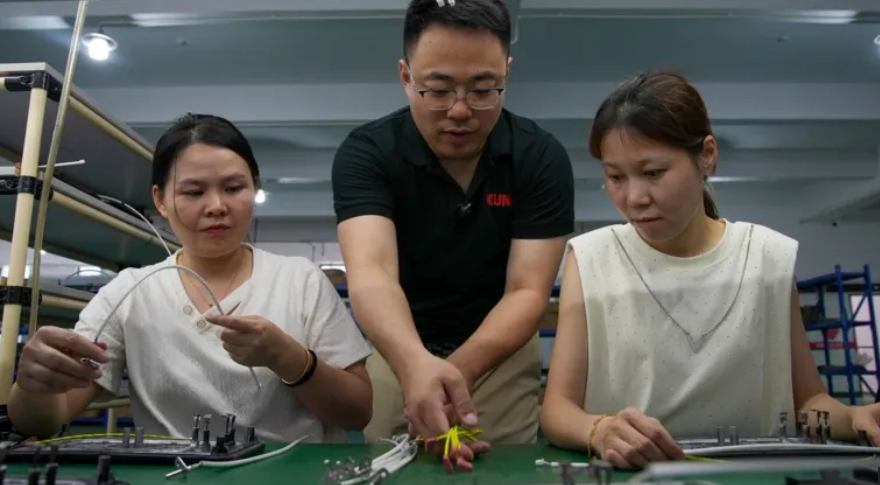On the factory floor in southern China’s Shunde district—once humming with activity—production lines are only just beginning to stir after a surprise trade deal between the US and China offered a reprieve from months of punishing tariffs.
For Derek Wang, founder of a high-end air fryer company, the breakthrough couldn’t come soon enough. His smart kitchen appliances, once a hit with American clients, were sidelined when former President Donald Trump’s “Liberation Day” tariffs imposed levies of up to 145% on Chinese goods entering the US on April 2.
“My clients told me to pause production,” said Wang, who employs 40 workers in Foshan. “I tried to keep smiling through my anxiety for their sake.”
The recent deal—struck during weekend negotiations in Switzerland—has now eased tensions. New terms reduce US tariffs on Chinese goods to 30%, while China lowered its retaliatory tariffs on US imports to 10%, down from 125%.
Wang’s customers are back. “Our US client is now willing to cover the tariffs, though we had to negotiate prices,” he said. Still, the experience has accelerated his plans to expand beyond the US market. “There’s a Chinese saying: good fortune comes out of bad,” he added.
This sentiment is increasingly echoed across China’s manufacturing hubs. Factories in Shunde—dubbed the “capital of home appliances”—are seeing cautious restarts after severe slowdowns. Jobs have become scarce, with some factories halting hiring or shutting down lines tied to US exports. Many migrant workers now sleep in parks or low-cost hostels to save what little they earn.
Gongyuan Furniture, another Foshan-based company, shut down most operations months before tariffs peaked. Founder He Ke, known to American clients as “HK,” had to cut staff from 200 to just 40. “Once tariffs hit 50%, we were already frozen. At 145%, we couldn’t survive,” he said. Now, orders are trickling in again, and workers are returning to stitch cushions and prep shipments.
Despite the tentative truce, uncertainty looms. Beijing views the pause as a diplomatic win but acknowledges the economic pain on the ground. Trump, meanwhile, claimed the tariffs had successfully pressured China, citing factory closures and unrest.
Yet, China continues to lead globally in key sectors like electric vehicles and solar energy. Officials maintain that while the trade war has taken a toll, the country remains resilient—and willing to negotiate.
With both governments now entering a 90-day window for further talks, small business owners like Wang and He remain hopeful. “This fight isn’t forever,” said He. “If both countries want to coexist long-term, they will find a way to sit down and talk.”


